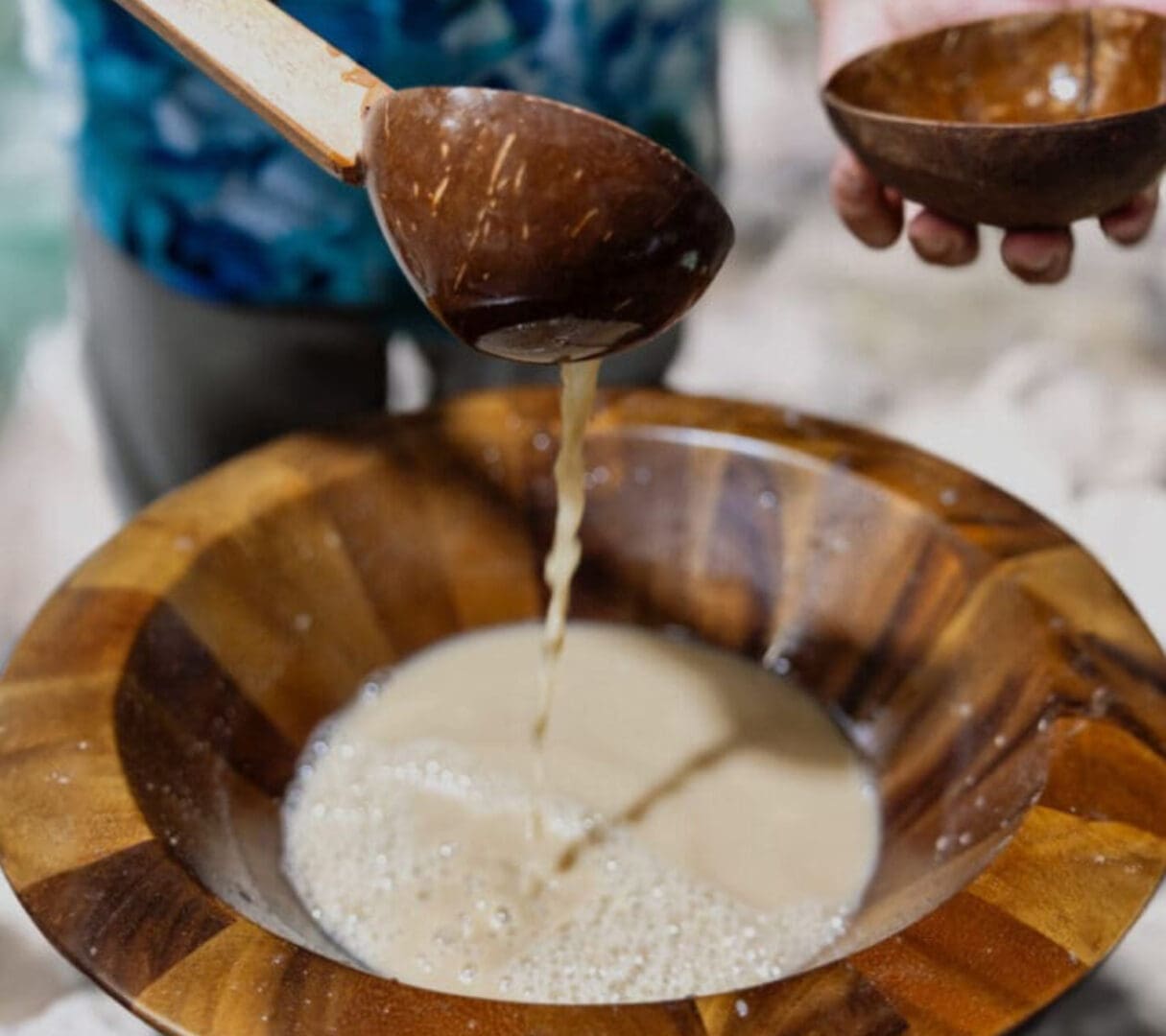Understanding Reverse Tolerance of Kava: What You Need to Know
In the realm of natural remedies, kava has emerged as a shining star, touted for its anxiety-reducing, stress-relieving, and sleep-enhancing properties. Did you know that kava, a traditional Pacific Island beverage, can actually become more potent with repeated use? Ever felt like you need less kava for the same effect?
Have you ever wondered why some people experience a heightened response to kava over time? This phenomenon, known as reverse tolerance, is a fascinating aspect of kava consumption. But what exactly is reverse tolerance, and how does it affect your kava experience? Let’s delve into the world of reverse tolerance and how kava affects the body.
What is Kava?
Kava is a traditional beverage enjoyed throughout the Pacific Islands, particularly in countries like Fiji, Vanuatu, and Tonga. It’s derived from the roots of the Piper methysticum plant, commonly known as the kava plant. The kava root contains psychoactive compounds called kavalactones, which are responsible for the beverage’s unique effects.
Traditional Uses:
- Ceremonial: Kava has long been used in ceremonial and religious practices throughout the Pacific Islands. It is often consumed during important events, such as weddings, funerals, and community gatherings.
- Social: Kava is also a popular social drink, enjoyed by friends and family. It cultivates a strong feeling of belonging and togetherness among individuals.
- Medicinal: Traditional healers have prepared kava to treat a variety of ailments, including anxiety, insomnia, and muscle pain.
Kava Benefits:
Kava has shown promise in addressing various health concerns. Some potential benefits of kava consumption include;
- Stress and anxiety reduction: Kava helps alleviate stress and anxiety symptoms.
- Improved sleep: Some individuals report better sleep quality after consuming kava.
- Muscle relaxation: Kava can help reduce muscle tension and promote relaxation.
- Liver-Safe: Research on pure kava suggests it is liver-safe, with no adverse effects on liver function.

Understanding Reverse Tolerance: Why Kava Gets Stronger Over Time
You might have felt like a cup of kava packs a bigger punch the more you drink it. Unlike most substances, kava exhibits a fascinating phenomenon called reverse tolerance. Typically, the body builds tolerance, requiring a higher dose of substances or medications to achieve the same effect. However, with kava, the kavalactones, the active compounds in the kava root, seem to interact differently. This means your sensitivity to kava can increase with consistent, responsible consumption. There are a few possible explanations for kava intolerance:
- Accumulation of Kavalactones: When you consume kava, the kavalactones gradually build up in your system over time. This could lead to a cumulative effect, making you more sensitive with repeated use.
- Enzyme Regulation: Your body may initially try to break down the kavalactones more efficiently. However, with consistent kava consumption, it might adjust its enzyme activity, leading to slower kavalactone breakdown and a stronger effect over time.
Kava Reverse Tolerance Mechanism:
Research suggests that reverse tolerance involves;
- Neuroplasticity:
Neuroplasticity allows the brain to reorganize and adapt in response to kava’s presence. Repeated exposure to kava:
- Strengthens neural connections associated with relaxation and anxiety reduction
- Enhances synaptic efficiency
- Promotes long-term potentiation (LTP), facilitating learning and memory
As the brain adapts, kava’s anxiolytic (anxiety-reducing) effects become more pronounced.
- GABA Receptor Modulation:
Kava interacts with GABA (gamma-aminobutyric acid) receptors, influencing anxiety and relaxation responses:
Prolonged kava consumption:
- Upregulates GABA receptor expression
- Enhances GABA receptor sensitivity
- Increases the efficacy of kava’s anxiolytic effects
- Acetylcholine Regulation:
Kava affects acetylcholine levels, impacting:
- Muscle contraction and relaxation
- Enhances memory and cognitive function
- Supports relaxation and calmness
In a nutshell, Kava consumption continues, the brain adapts through neuroplasticity, GABA receptor modulation, and acetylcholine regulation. This leads to:
- Increased sensitivity to kava’s effects
- Enhanced anxiolytic and relaxing properties
- Reduced dosage requirements
The combination of these mechanisms enables kava to produce more pronounced effects over time, characteristic of reverse tolerance.
Tolerance with Kava
As you continue your kava journey, it’s essential to be aware of the potential signs of reverse tolerance. Recognizing these symptoms can help you optimize your kava consumption and ensure a positive experience.
Kava user experiences of reverse tolerance often include:
- Increased relaxation: You might notice that the same kava dosage becomes more effective at promoting relaxation and reducing stress.
- Enhanced mood elevation: Kava’s mood-boosting effects might become more pronounced over time.
- Improved sleep quality: You may experience deeper and more restful sleep with consistent kava use.
- Reduced anxiety: If you’ve been using kava to manage anxiety, you might notice a greater reduction in symptoms. Fiji Vanua Kava suggests “heady kava” varieties for optimal anxiety and stress reduction.
Remember: Kava effects over time can vary from person to person. If you’re experiencing uncomfortable side effects or feel that the effects are too intense, it might be time to reduce your dosage.
Factors Influencing Reverse Tolerance with Kava
Individual variability plays a significant role in determining how your body responds to kava. Several other factors can affect your tolerance, including:
- Genetics: Your genetic makeup can influence your body’s metabolism and how it processes kavalactones.
- Diet: Certain dietary factors, such as the presence of grapefruit or certain medications, can interact with kava and potentially affect its effects.
- Lifestyle: Factors like stress levels, sleep quality, and overall health can impact your tolerance.
- Age: Your age can influence your body’s sensitivity to kava.
- Consumption frequency and dosage: Jumping straight to large doses could be a factor. Always start with a low kava dosage and gradually increase it if needed, listening to your body.
Kava Safety Tips:
Kava safety tips include;
- Dosage: Begin with a minimal kava dose and incrementally increase as necessary.
- Body Awareness: Heed your body’s response and adjust dosage accordingly.
- Moderation: Refrain from excessive kava consumption to prevent adverse reactions.
- Consult a healthcare professional: If you have any underlying health conditions or take medications, consult a healthcare provider before using kava.
Final Words
Understanding the reverse tolerance of kava is crucial for safe and effective consumption. By recognizing the signs of reverse tolerance and being aware of the factors that influence it, you can optimize your kava experience and enjoy it as a safer and more sustainable option.
Remember to start with a low dosage and gradually increase it as needed. Listen to your body and adjust your consumption accordingly. Avoid excessive use to minimize the risk of side effects. If you have any concerns or underlying health conditions, consult a healthcare professional before using kava.
For those seeking high-quality kava products, Fiji Vanua kava offers a variety of options, including:
- Instant gold: A luxurious instant kava blend offering a smooth, creamy taste and potent, balanced relaxation.
- Talanoa Mada: Elevate your social gatherings with this exceptionally heady kava, perfect for stimulating thought-provoking conversations.
- Birkar: A premium, single-cultivar kava from Espiritu Santo, Vanuatu, renowned for its subtle peppery flavor, creamy texture, and balanced euphoric effects.
By choosing reputable brands like Fiji Vanua kava and following responsible consumption practices, you can safely explore the benefits of kava and experience its unique effects.

